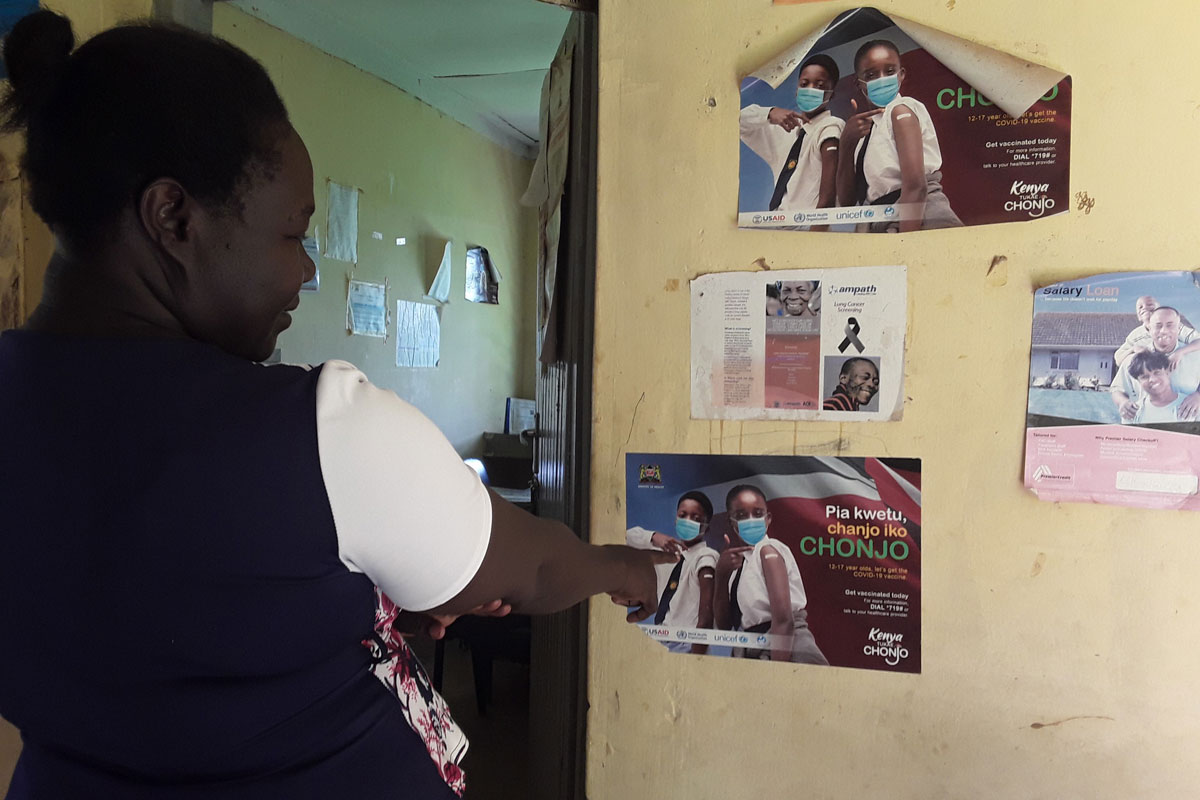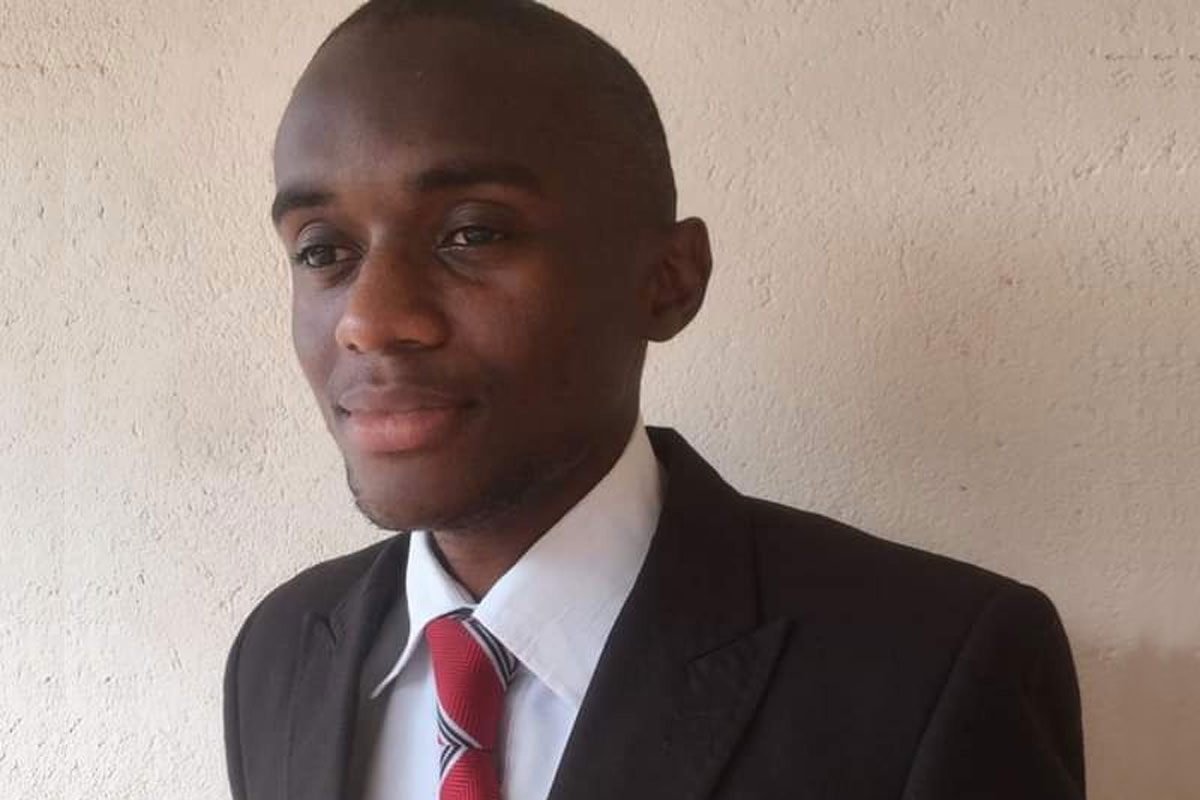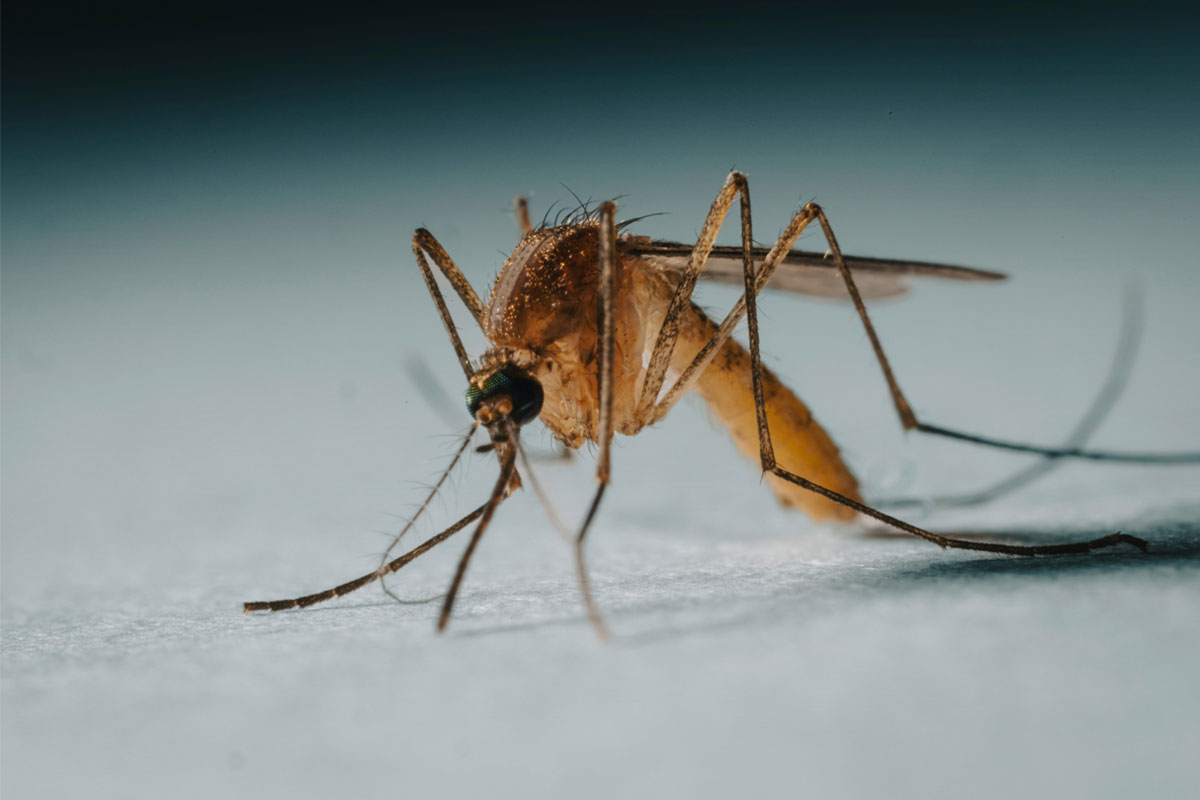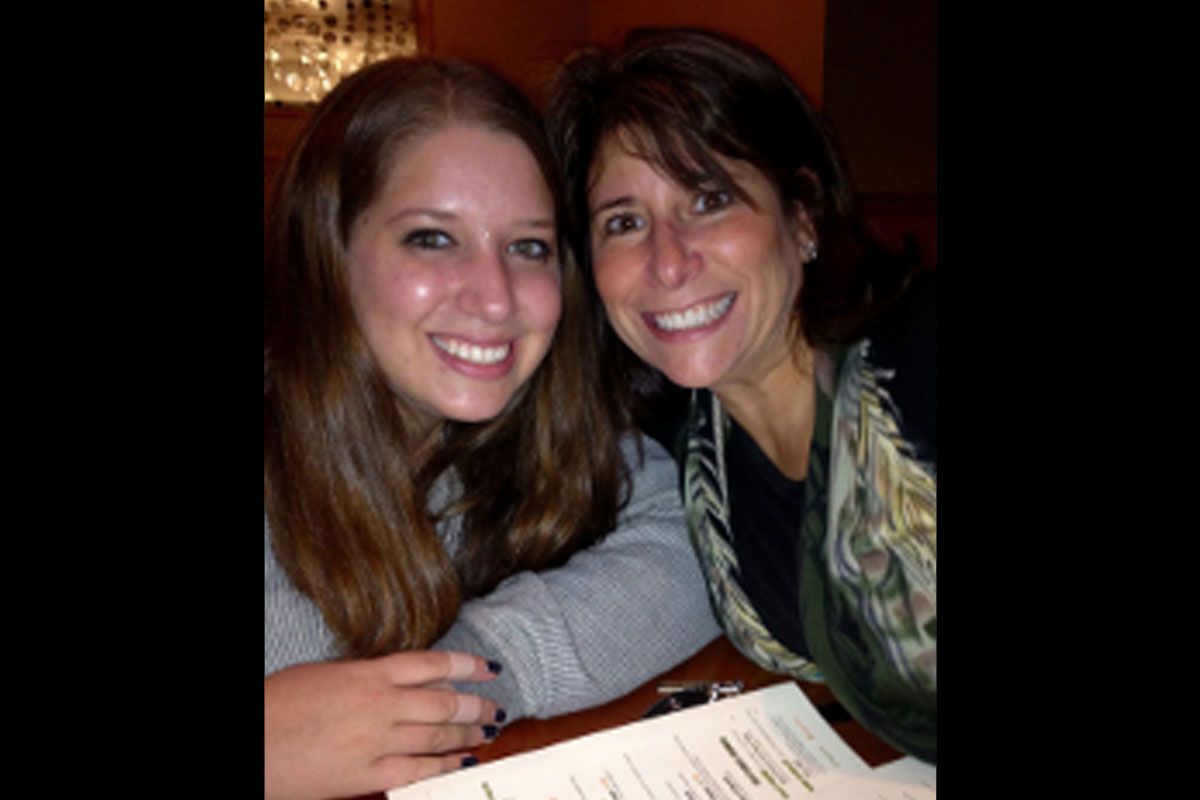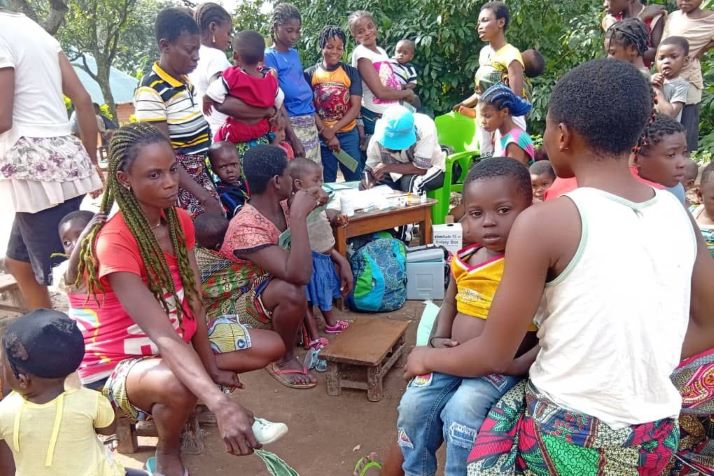19,000 displaced Lebanese, Syrian, and Palestinian children protected from preventable illnesses in five months
Gavi-funded vaccination programme protects marginalised groups in Lebanon.
- 31 July 2025
- 6 min read
- by Sara Matar
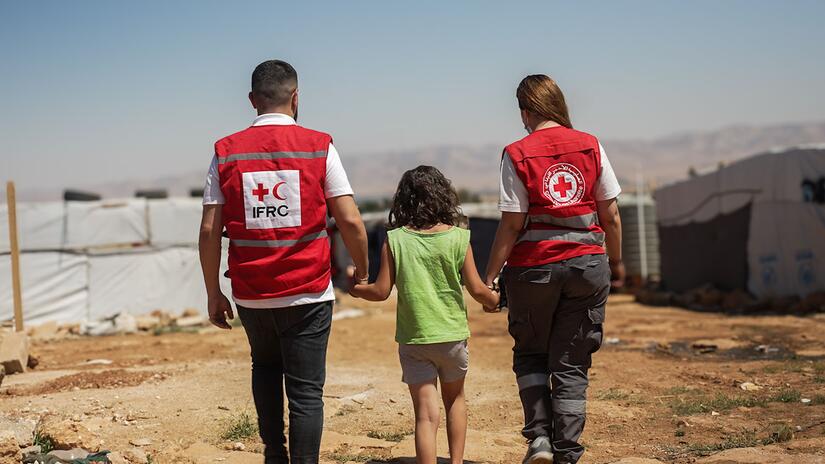
Twenty or thirty tarpaulin tents huddle on baked earth on an isolated, treeless hill-top. This is one of several newly-established camps in the Hermel, the north-eastern region of Lebanon, and currently a temporary home to about 280 refugees.
There is no running water or electricity. Exposed sewage raises the risk of drinking and cooking water becoming contaminated, and infectious diseases spread like they often do among displaced and vulnerable populations, layering crisis upon crisis. It’s a tough place for anyone to live, but toughest for the children.
Eight-year-old Batoul Jardo, who fled Homs in Syria a few months ago with her family, has tears in her eyes as she asks, “How are we supposed to live in the midst of this hell?” Seven-year-old Baneel Kazem Hammoud, also from Syria, tells VaccinesWork that she yearns for home, as she scratches at her arms: she has contracted a maddening skin infection.
At least this infection isn’t life-threatening. Even minor disruptions to health services can create the preconditions for an avoidable outbreak of disease. In exposed settings like this, vaccination is an indispensable shield.
Shields up
Between December 2024 and April 2025, a Gavi-funded initiative immunised 19,000 Lebanese, Syrian and Palestinian children in at-risk communities like the population of this camp.
Implemented by the Lebanese Red Cross (LRC), in coordination with the International Federation of Red Cross and Red Crescent Societies (IFRC) and Lebanon’s Ministry of Public Health, the programme aimed to protect the hardest-to-reach and most vulnerable children across four Lebanese governorates: Mount Lebanon, Baalbek-Hermel, Bekaa and Akkar.
Gavi support
A further US$ 15.5 million in Gavi funding has been approved for the year to June 2026 to help support the Lebanese Ministry of Public Health in restoring and strengthening routine immunisation.
That money will:
- Buy vaccines
- Supply technical expertise (via Gavi’s partners)
- Pay for outreach to displaced populations
“Given the displacement, difficult access of primary healthcare, and Lebanon’s ongoing crises, this programme – in cooperation with our partners – helped us reach the most vulnerable, and ensure those children are vaccinated and returned back to the routine immunisation system,” said Tasneem Obeid, a senior immunisation officer at the IFRC. “Hence, the importance of support that contributes to raising awareness, and the provision of vaccinations within underserved communities.”
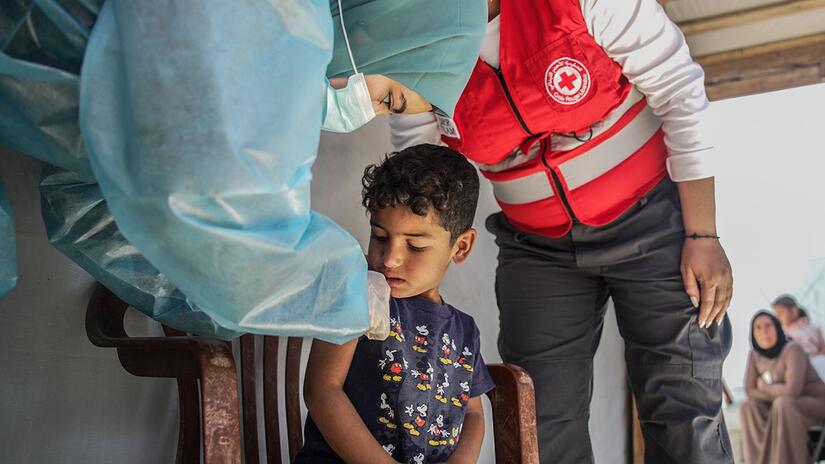
Lebanon’s recent past has been marked by a succession of overlapping catastrophes: a spiralling economy struggling with a liquidity crisis was engulfed by a global pandemic, whose repercussions were then first overshadowed and soon disastrously exacerbated by August 2020’s Beirut port explosion. Meanwhile and since, more than one war has spilled over the country’s borders. Disasters like these can both create and magnify public health risks. Childhood vaccination rates1 dropped from 76% in 2019 to 55% in 2023.
The Lebanese Red Cross (LRC), a national society staffed by more than 12,000 volunteers and equipped with strong data systems and experience at navigating tough conditions, has made it its mission to support the Ministry of Health within its auxiliary role to the public authorities, to make people safe – including by helping expand the reach of immunisation in the wake of COVID-19.
The pandemic had set back both uptake and vaccine confidence. Anti-vaccine rumours were running rampant, say LRC staff, when the organisation launched a major catch-up drive in October and November 2021. The LRC deployed 33 mobile clinics to some of Lebanon’s poorest communities, distributing life-saving vaccines, and life-saving health information along with them.
Have you read?
Qassem Shaalan, Director of the LRC Disaster Risk Reduction Unit, says the recent Gavi-funded project significantly boosted the capacity of his society to do their work. “From October 2021 to April 2025, the LRC has vaccinated over 700,00 Lebanese, Syrian and Palestinian children,” Shaalan said. “Gavi’s recent funding reached 19,000 children in just five months – a critical achievement following the urgent needs of the displaced in shelters after the recent Israeli war.”
With Gavi’s support, he went on, “we added 5 mobile teams, raising the total to 12, from a previous low of 7 due to funding shortages,” he told VaccinesWork. “Teams were distributed based on need, particularly in vulnerable and overcrowded regions like Akkar (north Lebanon), Bekaa (eastern Lebanon) and Baalbek-Hermel (north-eastern Lebanon).”
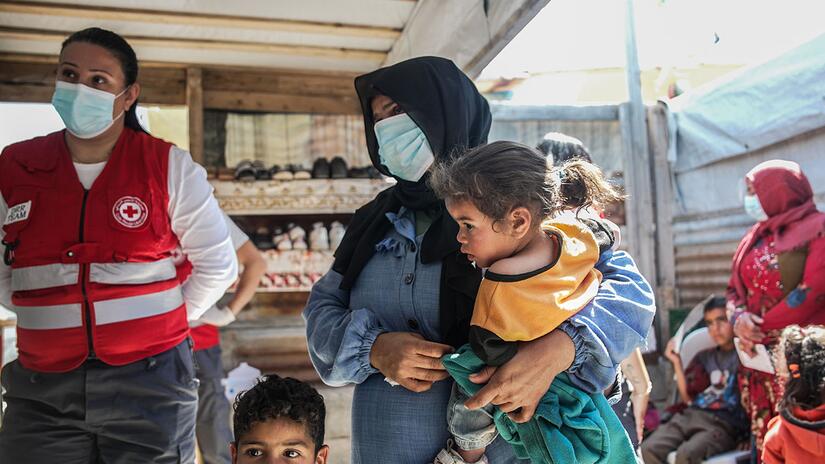
Raising demand for vaccination
One of those vulnerable, and over-crowded places is a refugee camp in Zahle, in Bekaa governorate, which shelters principally refugees from Syria, including 200 children. There, an LRC team – comprising a supervising medical director, lead nurse, data entry specialist, team leader and two volunteers – are working to tamp down the risk of preventable outbreaks.
At the camp, VaccinesWork met Rabea’a Al-Hussein, a mother of five children who has been living at the camp for more than a decade, having been originally displaced from her home in 2014.
The youngest of Al-Hussein’s children were immunised by LRC mobile teams, she says, and today, she’s proud that she can contribute to their efforts. Al-Hussein moves between the clinic and the tents to let other mothers know that the vaccination team has arrived, and soothes their worried children after the lead nurse administers them the all-important jab. It isn’t only the medical intervention itself that Al-Hussein values, she says – but the effort that the LRC teams make to address “parental fears”.
In Fakiha, Baalbek, some 34 km to the north, another mother echoes her. Nermine Waleed Hussein is a displaced Lebanese citizen, and a mother of two young children. “Awareness sessions helped mothers like me understand how vital vaccines are,” she told VaccinesWork. “I constantly follow the messages we receive on our phones, to make sure my two children are vaccinated, and I’m grateful for all the humanitarian efforts being made.”
Baalbek-Hermel Governorate hosts 150 shelters. Some are small – like the hill-top cluster of tents that is home to Batoul Jardo and Baneel Kazem Hammoud. Others are larger. The total population of these shelters is 89,500 displaced people – and staff at this one say that recent crises have led to some outbreaks of measles and hepatitis among them.
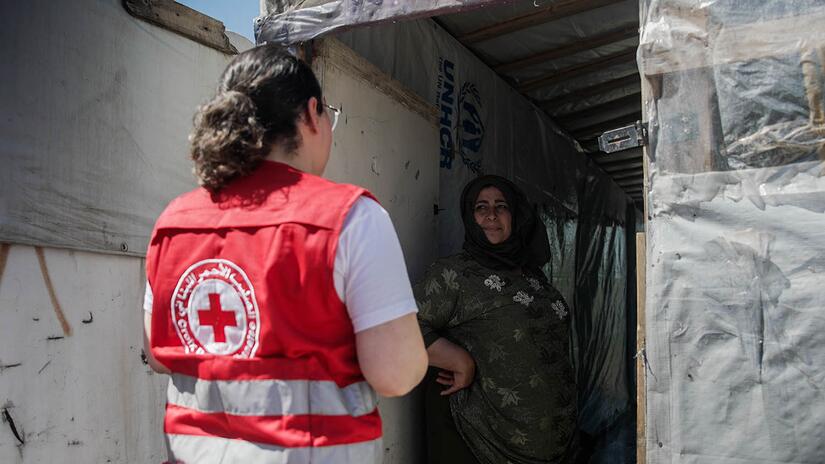
Both are avoidable, vaccine-preventable illnesses, but controlling fast-spreading pathogens in populations as disadvantaged as these isn’t easy. Still, the queue of children waiting for their shots is encouraging, and nurses say the turnout here is always high.
And for Hala Hasan Jardo, mother of Batoul Jardo, just the presence of the LRC field staff represents a rare glimmer of hope. “We fled Homs five months ago,” she told VaccinesWork. “No one helped us except LRC, which provided vaccines, medicine, awareness – healthcare.”
